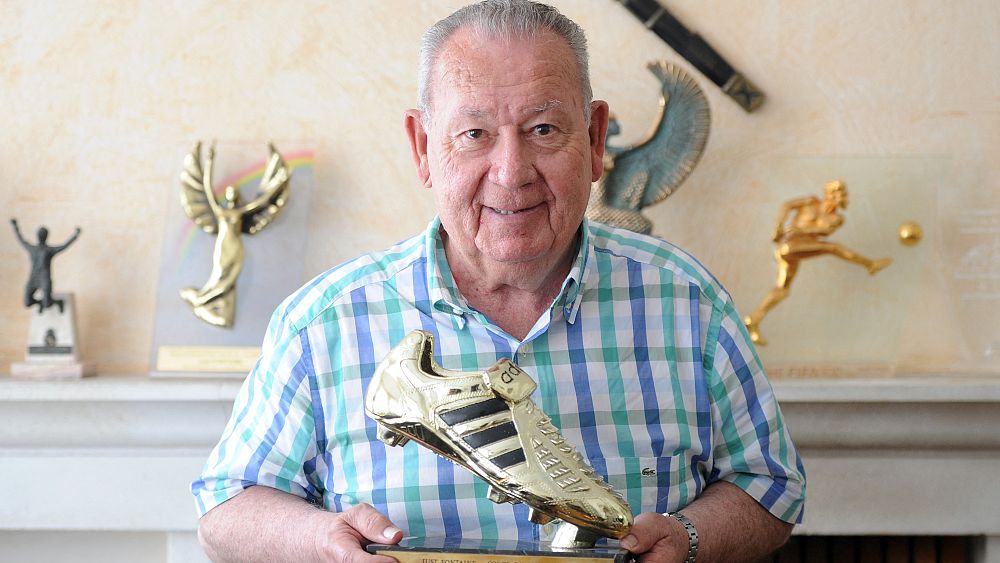
A documentary focused on Pope John Paul II’s alleged knowledge of paedophilia and sexual assault within the Catholic Church in Poland has caused widespread outcry and debate in the country after being broadcast earlier this week on the independent TVN channel.
The ruling Law and Justice party (PiS) has characterised this as an attack on Polish identity.
The former pope, also known by his Polish name Karol Józef Wojtyła, is perhaps the single most popular figure in country’s 20th century history, both due to being the first Polish pontiff and due to his role in inspiring the country’s transition out of communism in the 1990s.
“John Paul II is not just a religious figure or just a Pope in Poland,” explained historian and professor at Lazarski University, Christopher Lash.
“Yes, Poland is still an overwhelmingly Catholic country, but it’s more the fact that he was such an important symbol during communist times,” said Lash.
Wojtyła was elected pope in 1978 and famously became the first major religious figure to visit a communist country, since Poland was still a satellite of the Soviet Union at the time.
“Millions of people came out to see him and his message gave them hope that they could overcome the kind of authoritarian dictatorship that existed in Poland at the time,” Lash told Euronews.
“He’s seen as a national hero who led Poland out of communism and into becoming a free, democratic country.”
On Thursday, PiS, who have a majority in the Polish Sejm, adopted a resolution defending “the good name of Saint John Paul II” and condemned the “disgraceful media campaign.” They came to the parliament vote holding pictures of the late pope.
PiS have a long-standing practice of latching onto sensitive issues or those that carry a particular emotional significance for the Polish public ahead of elections, which are slated for November of this year.
“PiS will probably try to use this entire situation as a pretext for a cultural war, and ride on the strong emotions people still feel. For many in Poland, it might be too early for John Paul II and even the Catholic Church to be taken on properly,” Lash said.

After curtailing abortion and LGBT rights, PiS rallies around John Paul II
The Catholic Church in Poland is closely affiliated with the ruling party and is perceived as having backed PiS in its campaigns to curtail abortion and LGBTQ+ rights.
Protests broke out in August 2020 against the now-infamous “LGBT free zones” in Poland, often referred to as the ‘Polish Stonewall’ due to the similarities with the Stonewall Riots in New York City in 1969.
Another wave of protests emerged against the severe limitations on abortion in 2020 and 2021, and have energised an entire generation against the government’s policies on one hand, while also cementing PiS’ reputation as defenders of so-called traditional values on the other.
“These protests have, in some respects, weakened the church but also the ruling party since the two are perceived to be close. As a result of that, the church’s role in society is being criticised more and more, and definitely more than in the past,” said Lash.
“Even moderate Catholics and Catholic women also find the removal of all the abortion compromise problematic and are upset about it,” he continues.
Defending John Paul II, whose image resonates with those beyond the usual right-left divide in the country, could be their new rallying cry since it is not just PiS supporters who believe John Paul II is an extremely important figure.
“The ruling party adheres to sort of a sovereigntist position, one where Poland stands up for itself and is sceptical of outside forces trying to weaken Poland’s interests,” concludes Lash.
Deeply polarized views Even some opposition parties, including the far-right Konfederacja party, voted in favour of the resolution. The centrist Civic Coalition (KO), led by former European Council president Donald Tusk, abstained from the vote.
The left-wing Lewica party were the only ones to vote against it. “Our perspective is that we should protect the right to seek the truth.
The documentary seems to be fair and is not anti-clerical,” Maciej Gdula, a member of parliament from Lewica, told Euronews.
“They are basically saying that attacks on John Paul II are in line with all the external attacks that are trying to destabilize Poland. If you are attacking John Paul II you are basically on Putin’s side,” explains Gdula.
Several documentaries and films emerged over the past couple of years examining the role of the church in Polish society.
Most famous among them is the drama “Kler” or “The Clergy,” which also examines child abuse and corruption in the church.
The TVN documentary, titled “Franciszkańska 3,” was authored by journalist Marcin Gutowski and details John Paul II’s involvement in covering up sexual crimes when he was the Archbishop of Krakow in the 1960s and 1970s before he became Pope.
Attempts to discredit the documentary and the journalist involved in its conception are also seen as a continuation of the crackdown on independent media in the country.
In 2021, Reporters without Borders declared “a press freedom state of emergency” in the country when amendments to the broadcasting law were introduced which specifically targeted TVN and threatened to suspend their license.
The channel is a subsidiary of Warner Bros Discovery, an American company. Poland’s Ministry of Foreign Affairs issued a condemnation of the documentary and summoned the US ambassador to Poland, Mark Brzezinski, for talks in response to the documentary.
“They want to show that they are strong enough to demand that the US ambassador talks to them, and to explain to him what TVN is doing. We [PiS] are a strong party, we’re not even afraid of the Americans,” explains Gdula.
“There is huge polarization in Poland, with the PiS camp and their allies on one side and the opposition on the other. They want to convince the public that there is a war going on between good and evil, and that those who are good should stick to PiS,” he concluded.



